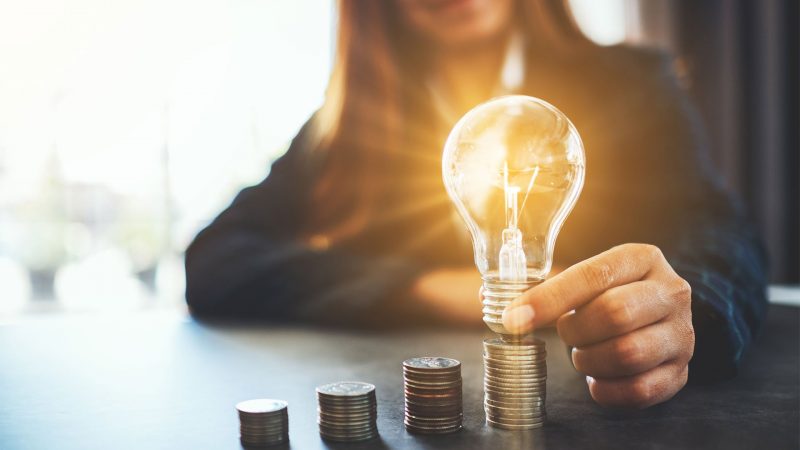It’s considered that productivity is based on efficient time management. It seems that everything is simple: the less time you spend on trifles, the more time you have for achieving your goals. However, if we look at the experience of people who got outstanding results in art, politics, and business, it becomes clear that success doesn’t depend on a great amount of time people spend on work.
Winston Churchill was a prominent politician though he didn’t work more than his predecessors and followers. Elon Musk has become a remarkable entrepreneur though he worked as hard as thousands of other startupers and entrepreneurs.
So time management isn’t a success secret and not a significant tool for achieving goals. It’s logical: you can plan efficiently your day, do plenty of things, and even make the right priorities but it doesn’t guarantee you any results as in the end it’s how good you are at doing things, not how many things you can do.
But if efficient time management isn’t the basis of productivity, what is?
Energy is the key resource
It’s an evident fact but we still remind you that one and the same thing can be done with different results. Whatever you do (meeting with partners, making up a business plan, or seeing friends), the key metric of the final product is quality of the time you spent, not quantity. Depending on how focused and energetic you are, you get this or that result.
You can create a business strategy in a day or work on it for a month without any result. You can be proactive in a meeting and suggest mutually beneficial conditions of partnership or be passive. Even when seeing friends you can be full of energy and have fun or you can be sad itself, staring at your phone.
Time management is OK in all the cases: right priorities, time is spent, you do what you should do. But there must be motivation and focus so the time isn’t wasted. To put it simpler, you need energy in order to do something good. Both physical and emotional energy. Unfortunately, unlike our smartphones, we can’t process information 24 hours a day at high speed and with stable results. Our bodywork is based on periodization and the regime of constant wear and tear which the flow of incoming information dictates leads to accumulation of tiredness and as a consequence decrease in productivity. You can realize any plan even if you have enough time without a sufficient quantity of energy.
Luckily, you can learn how to spend inner resources in the right way and how to efficiently fill them up.
Energy management
Firstly, you should understand that energy is composed of 2 parts: physical and emotional readiness of your body. But both of them are equally important. Here’s a little trick: working on your body leads to overall increase of tonus and motivation. That’s why a gym is the first and, probably, the most important step to increase both physical and emotional energy.
Why is it so important? It’s because the principles of filling and increasing physical and emotional energy are the same. Just as in a gym you train your muscles so they become stronger, emotional abilities are trained by the same principles. Like in fitness, there’s a principle of stress/recovering periodization, the same happens psychological stability.
We work out (stress) in a gym firstly, then we give it a rest (recovering). The muscle growth and increase of their endurance happen during rest then muscles deform because of increased load. Muscles won’t grow without rest. The same thing happens with motivation. On the one hand, it’s necessary to experience stress, from the other hand, it’s necessary to give yourself some time to rest in order to continue working refreshed.
In other words, instead of striving for being busy all the time and be “more productive”, you should understand that you need to alternate periods of work and rest so you can refill your energy and be able to work efficiently. You can refill the energy in many ways: for some people, it’s reading, for others — active hobbies but you should do it regularly. Create “meetings with yourself” in your calendar and reserve time for recovering.
It’s very important to have little ritual-sources of energy refilling so you are energetic every day and stable in showing good results. A walk during your lunch-time, a note in a journal, working out in a gym, daily communication with close people, hobbies — these are the sources of motivation and drive providing strength for the goals you’ve set.
Energy refilling activities and rest are as important for a businessman as the right training system for a bodybuilder. Muscles won’t grow without them
How not to waste your energy
There’s a sense to think about how you spend your energy along with the importance of “work/rest” periodization. We often spend it on unnecessary people, information and action. We rob ourselves a possibility to invest it in something really important this way.
In order to avoid it, you need to keep the following principles:
- Define your goals and desired results correctly. It’s quite an important skill for any busy person. But sometimes we forget about the most significant things because of a huge flow of incoming information. Why do we do what we do and what we want to get? Chaos control is created so we can always see our goals and don’t forget what exactly we should do in order to achieve them.
- We often consume information too reactively. We check our e-mails the first thing in the morning while staying in bed and then check social networks on our way to work. Then we spend an hour to answer e-mails at work. Then we go to a meeting and we are usually overloaded with information by lunch-time. All of that consumes energy. It’s not a surprise that we don’t have energy on something really important which correlates with our personal goals and tasks. We recommend not checking social network before lunch-time and spend first part of a day on your goals and desired results.
- Make time slots in your calendar for solving definite strategically important tasks. A task has more chances to be completed if it’s both in a calendar and in a to-do list. If you know that you’re working on forming new product version requirements from 9 till 11, it’ll be easier for you to reject the temptation of checking e-mails or social networks. It’ll be also easier to plan a break and get down to the following task.
- A necessity to conform to others’ expectation is another energy consumer. We often promise people something that we don’t have to promise. And then there’s a burden on our shoulders which makes us feel guilty if we can’t do it. The problem is that many of us want to gain other people’s love promising things they don’t have to. So promise less and do more.
- When people understand the necessity of energy management they find out that they need to acquire several habits that will help to make life better. Get up and go to bed earlier, do sports, read in the evening, etc. But it’s senseless to train all these simultaneously, at once.
- In reality, everything is possible but you should do it step by step. Start from getting rid of addiction from social networks, for example. Then get used to going to bed earlier. Each of the steps will give a great amount of energy which transforms into results and satisfaction from them.
The basis of productivity is energy, motivation and will for achieving goals. You should pay attention to habits and how on whom, and on what do you spend your energy on in order to do something significant and feel well. This is what differs successful people from miserable ones.
© Dmitriy Tarasov, Founder of Chaos Control app.





